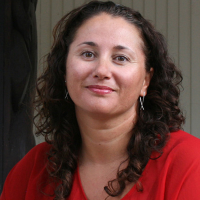You are here
Home › TLRI research › Research completed › School sector › Mana Ūkaipō: Enhancing Māori engagement through pedagogies of connection and belongingMana Ūkaipō: Enhancing Māori engagement through pedagogies of connection and belonging
Introduction/project description
This research project seeks to investigate the specific interventions that make the biggest difference to Māori student engagement in learning. For the past two years Across School Leaders (ASLs) from the Ngongotaha Kāhui Ako have been participating in cohesive collaborative inquiry to investigate approaches that improve student engagement and success for their large cohort of students of Māori descent (approximately 64%). This project will further investigate how students develop positive attitudes, motivation and engagement towards school by examining student, whānau and teacher perspectives about “what works and why?” Particular attention will be paid to iwi-initiated projects and localised curriculum.
Aims
The aim of this study is to partner with 6 ASLs from Te Maru o Ngongotaha Kāhui Ako to investigate the interventions that make the biggest difference to Maori student engagement in learning.
This partnership has two primary objectives:
- To collaborate with the Kāhui Ako to identify key information which will support PLD around effective collaborative inquiry, including hypothesis testing, data and evidence, analysis and synthesis. This will enable the Kāhui Ako to continue to develop and redefine their intervention programmes into the future.
- To collaboratively contribute to the evidence base around which interventions, and which specific intervention activities, are having the biggest impact on Maori students' academic motivation, engagement, and achievement. The project will further develop the evidence base about how students within this Kahui Ako develop positive attitudes, motivation and engagement towards school.
Why is this research important?
This project seeks to investigate the interventions and teacher leadership practices that make the biggest difference for Māori student engagement and academic achievement within Te Maru o Ngongotaha Kāhui Ako. The research aims to understand the practices that Māori students, and their whanau, identify as supporting them to be successful learners. A central aim of this project is to work collaboratively with teachers and leaders, building collective efficacy by driving change through a collaborative enquiry approach. Results from the research will inform planning and teaching within the Kāhui Ako, and also have applicability for other school communities with a high proportion of Māori students.
What we plan to do
This project will employ a mixed-methods research design gathering quantitative and qualitative data from ASLs, teachers, students and whanau. Methods of data collection will primarily include the Kia Tū Rangatira Ai survey and a stocktake of current interventions. The survey will be completed by May 2020 with the results providing baseline and evaluative data sets which measure the extent to which Māori students, teachers and Māori whānau feel their schools are providing opportunities for Māori students to achieve education success as Māori. The Intervention stocktake will be completed concurrently with the survey, providing data around current interventions focussed on increasing Maori student engagement. Collaborative analyses of data will allow the team to inspect and critique the underlying hypotheses / assumptions of the interventions and help to understand their level of effectiveness at a deeper level. We also intend to hold focus group sessions to further investigate areas of interest or success.
Our partners
The research team is collaborating with Across School Leaders (ASLs) from Te Maru o Ngongotaha Kāhui Ako (Community of Learning) to run this research project. ASLs include the Kāhui Ako lead, Kahira Morris, and 5 teachers from various schools in the Kāhui Ako including:
- Debbie Homes (Kaitao Intermediate)
- Tamara Simpkins (Ngongotaha School)
- Kath Mason (Rotorua Primary)
- Bubby Soloman (Selwyn Primary)
- Ruth Broadley (Western Heights High School)
Contact details
Dr Camilla Highfield
Faculty of Education and Social Work,
University of Auckland
c.highfield@auckland.co.nz
Dr Melinda Webber
Faculty of Education and Social Work,
University of Auckland
m.webber@auckland.co.nz
TLRI research
Recently published reports
Pepe meamea in the spirit of the collective: Embedding Samoan indigenous philosophy in ECE for Samoan children under two
Jacoba MatapoOn2Science - Multiple affordances for learning through participation in online citizen science
Dr Cathal Doyle and Dr Cathy BunttingLearning From Each Other: Enhancing Pacific Education through People, Concept and Culture-focused Inquiry
Dr Cherie Chu-Fuluifaga and Dr Martyn ReynoldsMore projects like this
- Zooming out and zooming in on student data: Developing teacher data literacy to enhance teaching and learning
- Toi ora, reo ora, Whatuora – Developing Toi Māori pedagogy to support Māori whanau aspirations for reo and tikanga
- Ngā pūrākau o Te Kura o Tuahiwi. A Kaupapa Māori Case study: a mixed methods approach

